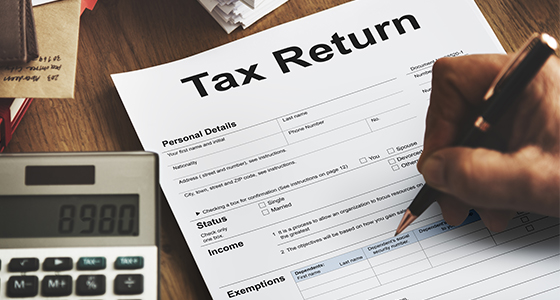
Filing your personal tax return can seem like a daunting task, especially if you’re doing it for the first time. There’s lots of paperwork involved, as well as tons of complicated rules you have to follow. But whether you have an accountant or are filing on your own, it’s important to know what information needs to go where and what tax deductions might be available to you.
Documents you need
The documents you need for filing your personal tax return will vary depending on the type of income you have. Here are some general guidelines:
-If you’re self-employed, it’s a good idea to keep records of your income and expenses for at least 3 years. This includes receipts for any business-related purchases and copies of any 1099 forms that show how much money was paid out to you during the year. These papers may help you if there is an audit.
-You’ll also need a copy of your W2 form from each employer as well as all documentation related to other types of income (interest, dividends, etc.). Be sure to hold onto these documents for 3 years in case the IRS requests them.
-Finally, if you receive Social Security benefits or disability payments from the government, you’ll need proof that those funds were sent directly to your bank account so they can’t be garnished by creditors or used in connection with bankruptcy proceedings.
Where to get it done
If you had a job this year, there are chances that your employer withheld taxes from your paycheck. If you did not have any income, then you will need to file a return. However, if you’re living abroad and do not owe any tax, then it’s still possible that you may want to file a return because of the benefits it provides such as educational credits or deductions for home mortgage interest. The IRS website has a step-by-step guide on how to complete the form 1040EZ, which is the easiest form of filing.
When to do it
If you’re an American, you’ll need to file a personal tax return every year. No matter how much money you make, if you live in the US and are 18 or older, the IRS expects you to file taxes annually. Every April 15th (or your personal tax filing deadline) is when most Americans will file their yearly returns.
If your income for the year was below $10,000 or so, then don’t worry about filing; but if it’s more than that, then it’s important that you do. For example, if this was your first year of working and your income was over $6200 (the minimum threshold), then I recommend filing a return.
Why you should do it yourself
The first step in filing your personal tax return is deciding if you want to do it yourself or have a professional prepare the return. Hiring a professional will cost you more money, but there are many reasons why this might be the better option for you.
1) Do you need help with maximizing deductions? 2) Do you want someone else to deal with the complicated calculations? 3) Is English not your first language? 4) Are you just too busy and need an extra pair of hands?
